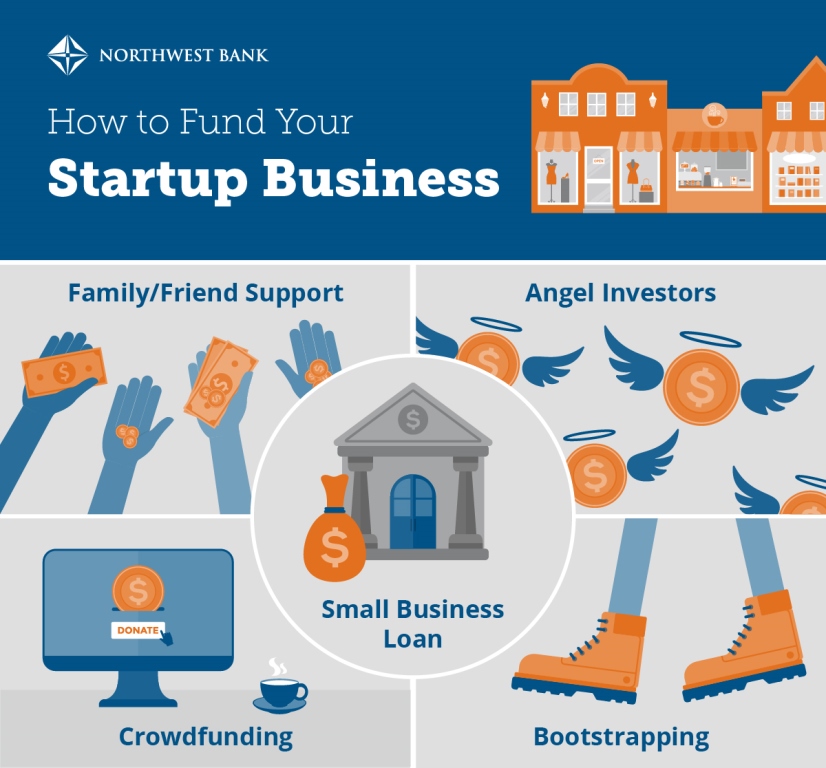Unlocking Your Business Idea: Identifying Opportunities and Passions
Starting a business can be a daunting task, but it begins with a single idea. To increase the chances of success, it’s essential to find a business idea that aligns with your passions and skills. When considering how to start your own business, it’s crucial to brainstorm and evaluate potential ideas carefully. This involves researching the market, analyzing competitors, and identifying gaps in the industry.
One effective way to generate business ideas is to explore your hobbies and interests. What are you passionate about? What problems do you face in your daily life that you could solve with a product or service? By combining your passions with market research, you can create a unique business idea that sets you apart from the competition.
Another approach is to identify emerging trends and industries. What are the latest innovations in technology, healthcare, or sustainability? How can you capitalize on these trends to create a successful business? By staying ahead of the curve, you can position yourself for success in a rapidly changing market.
When evaluating business ideas, it’s essential to consider your skills and strengths. What are your areas of expertise? What skills do you bring to the table? By leveraging your strengths, you can create a business that is more likely to succeed. Additionally, consider seeking feedback from mentors, peers, and potential customers to refine your idea and increase its chances of success.
Ultimately, finding the right business idea is a process that requires patience, persistence, and creativity. By combining your passions with market research and skills, you can unlock a business idea that has the potential to succeed. Remember, starting a business is a journey, and it’s essential to be flexible and adapt to changing circumstances. With the right idea and a solid plan, you can set yourself up for success and achieve your entrepreneurial goals.
Defining Your Business Model: Choosing the Right Structure for Success
When starting a business, one of the most critical decisions you’ll make is choosing the right business structure. This decision will impact your business’s liability, taxation, and overall success. Understanding the different types of business structures is essential to making an informed decision. In this section, we’ll explore the most common business structures, their advantages and disadvantages, and provide guidance on how to choose the right one for your business.
A sole proprietorship is the simplest and most common business structure. It’s owned and operated by one individual, who is personally responsible for all business debts and liabilities. This structure is ideal for small businesses or entrepreneurs who want to test their business idea before scaling up. However, it offers no liability protection, which means the owner’s personal assets are at risk in case of business debts or lawsuits.
A partnership is a business structure owned and operated by two or more individuals. Partners share profits and losses, and each partner is personally responsible for the business’s debts and liabilities. This structure is suitable for businesses with multiple owners who want to share responsibilities and risks. However, it can be challenging to manage, especially if partners have different visions or management styles.
A Limited Liability Company (LLC) is a popular business structure that offers liability protection and tax benefits. LLCs are owned by members, who can be individuals, corporations, or other LLCs. This structure provides flexibility in management and ownership, making it ideal for businesses with multiple owners or investors. However, it requires more formalities and paperwork than sole proprietorships or partnerships.
A corporation is a more complex business structure that offers liability protection and tax benefits. Corporations are owned by shareholders, who elect a board of directors to manage the business. This structure is suitable for large businesses or those that plan to go public. However, it requires more formalities and paperwork than other business structures, and can be more expensive to maintain.
When choosing a business structure, consider your business goals, size, and complexity. It’s essential to consult with an attorney or accountant to determine the best structure for your business. Additionally, consider the following factors: liability protection, taxation, management and ownership, and scalability. By choosing the right business structure, you’ll set your business up for success and ensure long-term growth and profitability.
Creating a Solid Business Plan: Outlining Your Path to Success
A well-crafted business plan is essential for any entrepreneur looking to start a successful business. It serves as a roadmap, outlining your business goals, strategies, and financial projections. A good business plan will help you stay focused, make informed decisions, and measure your progress. In this section, we’ll discuss the key elements of a business plan and provide guidance on how to create one that will help you achieve your entrepreneurial goals.
A business plan typically consists of several key components, including a market analysis, financial projections, and marketing strategies. The market analysis should provide an overview of your target market, including demographics, needs, and trends. This information will help you understand your customers and create products or services that meet their needs.
Financial projections are also a critical component of a business plan. This section should include projected income statements, balance sheets, and cash flow statements. These projections will help you understand your business’s financial performance and make informed decisions about investments and funding.
Marketing strategies are another essential element of a business plan. This section should outline your plans for reaching and engaging with your target market, including branding, advertising, and public relations. A well-crafted marketing strategy will help you create a buzz around your products or services and attract new customers.
When creating a business plan, it’s essential to be realistic and flexible. Your plan should be based on thorough market research and financial analysis, and it should be regularly reviewed and updated to reflect changes in your business and market.
There are many resources available to help you create a business plan, including online templates and business planning software. However, it’s essential to remember that a business plan is a unique document that should reflect your business’s specific needs and goals.
By creating a solid business plan, you’ll be well on your way to starting a successful business. Remember to stay focused, be flexible, and regularly review and update your plan to ensure you’re on track to achieving your entrepreneurial goals.
When learning how to start your own business, it’s essential to understand the importance of a business plan. A well-crafted plan will help you navigate the challenges of entrepreneurship and achieve success. By following the guidance outlined in this section, you’ll be able to create a business plan that will serve as a roadmap for your venture.
Securing Funding: Exploring Options for Financing Your Business
Securing funding is a crucial step in starting and growing a business. There are several options available to entrepreneurs, each with its own advantages and disadvantages. In this section, we’ll explore the various funding options and provide guidance on how to prepare a persuasive pitch and secure funding for your business.
Loans are a common funding option for businesses. They can be obtained from banks, credit unions, or online lenders. To secure a loan, you’ll need to prepare a solid business plan, including financial projections and a detailed budget. You’ll also need to demonstrate a good credit history and a clear plan for repaying the loan.
Grants are another funding option for businesses. They are typically offered by government agencies
Securing Funding: Exploring Options for Financing Your Business
Securing funding is a crucial step in starting and growing a business. There are several options available to entrepreneurs, each with its own advantages and disadvantages. In this section, we’ll explore the various funding options and provide guidance on how to prepare a persuasive pitch and secure funding for your business.
Loans are a common funding option for businesses. They can be obtained from banks, credit unions, or online lenders. To secure a loan, you’ll need to prepare a solid business plan, including financial projections and a detailed budget. You’ll also need to demonstrate a good credit history and a clear plan for repaying the loan.
Grants are another funding option for businesses. They are typically offered by government agencies or non-profit organizations and are designed to support specific industries or business types. To secure a grant, you’ll need to research and identify relevant grant programs, prepare a detailed application, and demonstrate a clear plan for using the funds.
Crowdfunding is a relatively new funding option that allows businesses to raise funds from a large number of people, typically through online platforms. To secure crowdfunding, you’ll need to create a compelling pitch, including a clear description of your business and a detailed plan for using the funds. You’ll also need to demonstrate a strong social media presence and a clear plan for engaging with your backers.
Investors are another funding option for businesses. They can provide significant funding in exchange for equity in your business. To secure investment, you’ll need to prepare a solid business plan, including financial projections and a detailed budget. You’ll also need to demonstrate a clear plan for growth and a strong management team.
When preparing a pitch for funding, it’s essential to be clear, concise, and compelling. You should demonstrate a deep understanding of your business and a clear plan for using the funds. You should also be prepared to answer questions and provide additional information as needed.
Securing funding can be a challenging and time-consuming process. However, with a solid business plan and a clear pitch, you can increase your chances of success. Remember to stay focused, be persistent, and be open to feedback and guidance from potential funders.
When learning how to start your own business, it’s essential to understand the various funding options available
Securing Funding: Exploring Options for Financing Your Business
Securing funding is a crucial step in starting and growing a business. There are several options available to entrepreneurs, each with its own advantages and disadvantages. In this section, we’ll explore the various funding options and provide guidance on how to prepare a persuasive pitch and secure funding for your business.
Loans are a common funding option for businesses. They can be obtained from banks, credit unions, or online lenders. To secure a loan, you’ll need to prepare a solid business plan, including financial projections and a detailed budget. You’ll also need to demonstrate a good credit history and a clear plan for repaying the loan.
Grants are another funding option for businesses. They are typically offered by government agencies or non-profit organizations and are designed to support specific industries or business types. To secure a grant, you’ll need to research and identify relevant grant programs, prepare a detailed application, and demonstrate a clear plan for using the funds.
Crowdfunding is a relatively new funding option that allows businesses to raise funds from a large number of people, typically through online platforms. To secure crowdfunding, you’ll need to create a compelling pitch, including a clear description of your business and a detailed plan for using the funds. You’ll also need to demonstrate a strong social media presence and a clear plan for engaging with your backers.
Investors are another funding option for businesses. They can provide significant funding in exchange for equity in your business. To secure investment, you’ll need to prepare a solid business plan, including financial projections and a detailed budget. You’ll also need to demonstrate a clear plan for growth and a strong management team.
When preparing a pitch for funding, it’s essential to be clear, concise, and compelling. You should demonstrate a deep understanding of your business and a clear plan for using the funds. You should also be prepared to answer questions and provide additional information as needed.
Securing funding can be a challenging and time-consuming process. However, with a solid business plan and a clear pitch, you can increase your chances of success. Remember to stay focused, be persistent, and be open to feedback and guidance from potential funders.
When learning how to start your own business, it’s essential to understand the various funding options available
Securing Funding: Exploring Options for Financing Your Business
Securing funding is a crucial step in starting and growing a business. There are several options available to entrepreneurs, each with its own advantages and disadvantages. In this section, we’ll explore the various funding options and provide guidance on how to prepare a persuasive pitch and secure funding for your business.
Loans are a common funding option for businesses. They can be obtained from banks, credit unions, or online lenders. To secure a loan, you’ll need to prepare a solid business plan, including financial projections and a detailed budget. You’ll also need to demonstrate a good credit history and a clear plan for repaying the loan.
Grants are another funding option for businesses. They are typically offered by government agencies or non-profit organizations and are designed to support specific industries or business types. To secure a grant, you’ll need to research and identify relevant grant programs, prepare a detailed application, and demonstrate a clear plan for using the funds.
Crowdfunding is a relatively new funding option that allows businesses to raise funds from a large number of people, typically through online platforms. To secure crowdfunding, you’ll need to create a compelling pitch, including a clear description of your business and a detailed plan for using the funds. You’ll also need to demonstrate a strong social media presence and a clear plan for engaging with your backers.
Investors are another funding option for businesses. They can provide significant funding in exchange for equity in your business. To secure investment, you’ll need to prepare a solid business plan, including financial projections and a detailed budget. You’ll also need to demonstrate a clear plan for growth and a strong management team.
When preparing a pitch for funding, it’s essential to be clear, concise, and compelling. You should demonstrate a deep understanding of your business and a clear plan for using the funds. You should also be prepared to answer questions and provide additional information as needed.
Securing funding can be a challenging and time-consuming process. However, with a solid business plan and a clear pitch, you can increase your chances of success. Remember to stay focused, be persistent, and be open to feedback and guidance from potential funders.
When learning how to start your own business, it’s essential to understand the various funding options available
Securing Funding: Exploring Options for Financing Your Business
Securing funding is a crucial step in starting and growing a business. There are several options available to entrepreneurs, each with its own advantages and disadvantages. In this section, we’ll explore the various funding options and provide guidance on how to prepare a persuasive pitch and secure funding for your business.
Loans are a common funding option for businesses. They can be obtained from banks, credit unions, or online lenders. To secure a loan, you’ll need to prepare a solid business plan, including financial projections and a detailed budget. You’ll also need to demonstrate a good credit history and a clear plan for repaying the loan.
Grants are another funding option for businesses. They are typically offered by government agencies or non-profit organizations and are designed to support specific industries or business types. To secure a grant, you’ll need to research and identify relevant grant programs, prepare a detailed application, and demonstrate a clear plan for using the funds.
Crowdfunding is a relatively new funding option that allows businesses to raise funds from a large number of people, typically through online platforms. To secure crowdfunding, you’ll need to create a compelling pitch, including a clear description of your business and a detailed plan for using the funds. You’ll also need to demonstrate a strong social media presence and a clear plan for engaging with your backers.
Investors are another funding option for businesses. They can provide significant funding in exchange for equity in your business. To secure investment, you’ll need to prepare a solid business plan, including financial projections and a detailed budget. You’ll also need to demonstrate a clear plan for growth and a strong management team.
When preparing a pitch for funding, it’s essential to be clear, concise, and compelling. You should demonstrate a deep understanding of your business and a clear plan for using the funds. You should also be prepared to answer questions and provide additional information as needed.
Securing funding can be a challenging and time-consuming process. However, with a solid business plan and a clear pitch, you can increase your chances of success. Remember to stay focused, be persistent, and be open to feedback and guidance from potential funders.
When learning how to start your own business, it’s essential to understand the various funding options available







